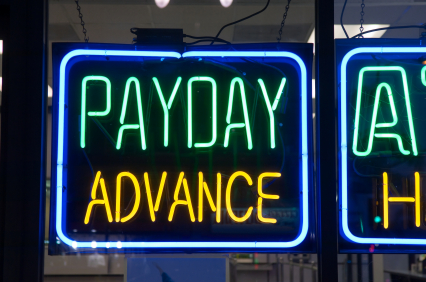If you file bankruptcy not long after you’ve made certain kinds of “luxury purchases” and cash advances, those debts might not be discharged (written off). But this risk can be avoided.
When you file bankruptcy all or most of your debts are discharged. But certain kinds might not be, including any debts incurred through fraud or misrepresentation. Among those is a special category of recent cash advances and ‘luxury’ purchases, which the law says “are presumed to be nondischargeable.” What is this “presumption, and what can you do to avoid it and get a discharge of all your debts?
The Reason for the Fraud Exception
Also most of the time all or most of your debts will get discharged in bankruptcy. But basic to bankruptcy law is the principle that to get the benefits of bankruptcy, you have to be honest. You can’t intentionally (or maybe even recklessly) defraud a creditor and then just discharge the debt you owe to it. So the Bankruptcy Code says that any creditor can challenge your discharge of its debt if it that debt was “obtained by . . . “false pretenses, false representation, or actual fraud . . . .” Section 523(a)(2) .
How Does the “Presumption of Fraud” Work?
A presumption of fraud makes it easier for a creditor to prove fraud, thereby avoid its debt from being discharged.
The way it works is that a creditor has to object to the discharge of a debt that it thinks you incurred fraudulently. Otherwise that debt will be still be discharged (even if there actually was fraud involved). The creditor files a limited kind of lawsuit at the bankruptcy court to show that the debt should not be discharged. The creditor would usually need to present evidence to the court establishing your alleged fraud or misrepresentation. A presumption allows the creditor under very specific circumstances to win its lawsuit without bringing that kind of evidence, once it shows that those circumstances apply.
This will make sense as we show you the two sets of circumstances in which a presumption of fraud arises: “luxury goods or services” and cash advances.
The “Luxury Goods or Services” Presumption
If a consumer buys more than $500 in “luxury goods or services” during the 90 day period before filing bankruptcy, the debt related just to that purchase (not the entire debt) is “presumed” not to be discharged. That merely means that, if the creditor decided to challenge the discharge of that portion of the debt, it would not need to provide evidence that the debtor did not intend to pay the debt at the time of the purchase. That, as far as it goes, is an important advantage for the creditor because that kind of intent is usually difficult to get. This presumption is based on the assumption that within a short period of time before filing bankruptcy there’s a much greater chance that a debtor knows at the time of the purchase that she would not pay for that purchase because she intended to file bankruptcy.
So all the creditor has to do is show that the purchase was made within the 90-day period and that it was for “luxury goods or services.” The definition of that phrase is much broader than it sounds. It includes everything except those goods or services “reasonably necessary for the support or maintenance of the debtor or a dependent of the debtor.” What counts as such a necessity is not clear, so that’s left up to the bankruptcy judge.
The Cash Advance Presumption
Similarly, if a consumer incurs a debt consisting of one or more cash advances totaling more than $750 during the period of 70 days before filing bankruptcy, then creditor does not need to bring evidence proving that the debtor did not intend to pay the debt.
Defeating Either Presumption
Once a creditor establishes that a debt fits within one of these two presumptions of fraud, that does not mean that the creditor necessarily wins. The debtor then has the opportunity to present evidence that he did in fact intend to pay that newly incurred debt as of the time of the purchase or cash advance. He can do that by testifying to that fact and/or by presenting evidence that would support that, such as revealing what subsequent event pushed him to filing bankruptcy or showing how he continued paying his creditors-including the objecting creditor-after making the purchase or cash advance.
A Creditor Doesn’t Need a Presumption
Just because a debt does not fit within one of these two presumptions-for example a purchase or cash advance was made before the respective 90 and 70-day periods-does not mean that a creditor can’t challenge the discharge of a debt. The creditor would merely not have the procedural advantage of a presumption. Instead the creditor would have to provide the court with persuasive evidence that the debtor did not intend to pay the debt, which again is usually not readily available. That’s why creditors are much more likely to challenge the discharge of purchases and cash advances that were made within the presumption periods.
Avoiding These Presumptions of Fraud
To avoid giving a creditor the opportunity to use these presumptions against you, do two things: 1) if possible, don’t use any credit for many months before filing bankruptcy; and 2) if you do use credit to which one of these presumptions would apply, don’t file bankruptcy until any possible uses of credit are beyond these 70 and 90-day presumption periods, and longer if you can.

